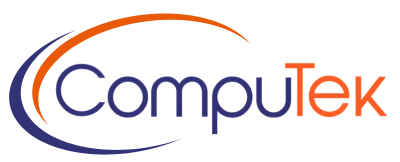
In today’s competitive business landscape, the role of managed IT providers in Austin, Texas, has become crucial. These providers offer a range of essential services that are integral to the smooth functioning and growth of businesses in the area. Understanding the core functions of managed IT services can help businesses recognize the value of robust IT infrastructure and support.
Exploring the Importance of IT Services for Business Growth
Managed IT providers in Austin serve as the backbone of numerous organizations, offering essential technological services and support. Their responsibilities typically include the management, maintenance, and optimization of IT infrastructure, software, and networks. They are also tasked with ensuring data security, providing technical support, and implementing strategic IT solutions that align with the company’s business objectives.
The importance of IT services for business growth cannot be overstated. Managed IT providers play a pivotal role in ensuring the seamless functioning of various IT systems and processes within an organization. Their ability to streamline operations, enhance data security, and provide timely technical support directly contributes to the overall efficiency and productivity of businesses. Furthermore, these services enable businesses to scale up their operations and expand their reach in the increasingly competitive market landscape.
Selecting the Right Managed IT Provider in Austin for Your Business
Choosing the most suitable managed IT provider in Austin is a critical step in ensuring the efficient operation and growth of your business. Assessing their capabilities and expertise is vital in determining whether they can meet your unique IT requirements and challenges effectively. Also understanding the significance of tailored IT solutions and their ability to align with your business objectives is equally crucial in making an informed decision.
Examining their past performance, client testimonials, and the range of services they offer can provide valuable insights into their proficiency and reliability in addressing various IT needs.
Implementing Managed IT Services for Growth
Successfully implementing managed IT services is key to fostering growth and expansion within your business. Developing effective strategies for seamless integration and adoption of these services ensures that your business operations run smoothly and efficiently. Leveraging managed IT for streamlined operations enables you to focus on your business’s needs and drive sustainable growth.
Ensuring Cybersecurity and Data Protection with Managed IT
Maintaining robust cybersecurity measures and ensuring comprehensive data protection are critical in today’s digital landscape. Addressing security concerns and vulnerabilities requires a proactive approach to identifying and mitigating potential risks effectively. Implementing the best data privacy and protection practices is crucial to safeguarding sensitive information from unauthorized access and breaches.
By conducting thorough risk assessments and implementing robust security protocols, managed IT providers can help fortify your systems against potential cyber threats and attacks. Regular monitoring and timely response to emerging security issues are essential to maintain a secure and resilient IT environment.
With the increasing prevalence of data breaches and cyber-attacks, prioritizing data privacy and protection is non-negotiable. Managed IT providers can assist in implementing best practices, including data encryption, access control mechanisms, and data backup solutions. By adhering to stringent data protection standards and regulations, businesses can build trust with their customers and stakeholders while ensuring compliance with industry-specific requirements.
Understanding the Importance of Ongoing IT Support and Maintenance
Recognizing the critical role of ongoing IT support in maintaining business continuity is essential. Managed IT providers offer comprehensive support services, including troubleshooting, regular system checks, and timely upgrades, to ensure that your business operations remain uninterrupted and efficient.
Implementing effective strategies for preventative maintenance and efficient issue resolution is crucial for minimizing potential IT disruptions. By conducting routine maintenance checks, managing software updates, and addressing any technical issues proactively, businesses can avoid costly downtimes and maintain a robust IT framework.
Optimizing Business Processes and Productivity with Ongoing IT Solutions
Managed IT solutions offer valuable tools and resources to streamline and optimize various business processes, enhancing operational efficiency and productivity. Leveraging these solutions enables businesses to improve their overall performance and foster better organizational communication and collaboration.
By incorporating managed IT solutions, businesses can streamline their operational procedures, automate repetitive tasks, and enhance overall efficiency. Leveraging advanced technologies and tools allows for the optimization of day-to-day operations, enabling employees to focus on critical tasks and strategic initiatives.
Managed IT solutions can also provide communication and collaboration tools that facilitate seamless interactions and efficient teamwork. By integrating these solutions into the business framework, organizations can enhance internal and external communication, foster collaboration among teams, and improve overall engagement and productivity.
Measuring the Increased Impact of Managed IT Providers on Austin Businesses
Understanding and evaluating the impact of managed IT providers on businesses in Austin involves analyzing key performance indicators and metrics to assess the effectiveness of the implemented solutions. By closely monitoring these performance measures, businesses can gain valuable insights into the success and efficiency of their managed IT services, contributing to informed decision-making and continuous improvements.
Monitoring key performance indicators (KPIs) and relevant metrics is essential for assessing the performance and impact of managed IT services on business operations. These KPIs can include network uptime, response time, resolution time, and overall system reliability, providing critical data points for evaluating the effectiveness and efficiency of the IT infrastructure.
Understanding the Long-Term Benefits of Managed IT for Business Success
Recognizing the long-term benefits that managed IT services offer is crucial for businesses aiming to foster sustainable growth and success. Beyond immediate improvements in operational efficiency and productivity, managed IT solutions contribute to enhanced data security, increased scalability, and improved cost-effectiveness, paving the way for long-term business success and resilience.
